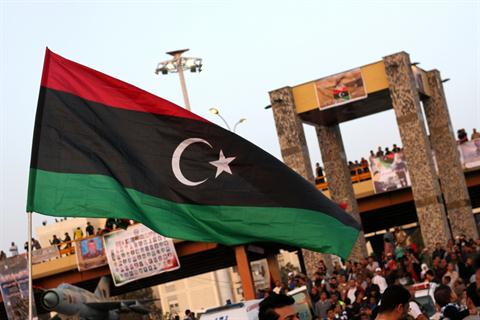CAIRO: A new deal increasing the export of Egyptian natural gas to Israel has come into effect despite popular protest in Egypt.
The Egyptian Mediterranean Gas company, which exports natural gas to the state owned Israel Electric Corporation and the private Israeli firm Dorad, has expanded a deal signed in 2005 with Israel Electric.
The amended $6 billion deal – signed in September last year and comes into effect this week – involves a higher price and calls for an increased production of 42 billion cubic meters over 20 years
Initially signed in 2005, the original deal between Egyptian Mediterranean Gas and the Israeli Electrical Company called for the annual delivery of 1.7 billion cubic meters of gas for a total of 34 billion cubic meters over 20 years.
Officials at the Ampal-American Israel Corporation, which owns 12.5 percent of Egyptian Mediterranean Gas, said that the price of the gas has been raised in concert with growing energy prices throughout the world.
“The update includes a variety of issues from operational details to pricing details, Zeev Feiner, a spokesperson for the Ampal-American Israel Corporation told The Media Line.
The export of Egyptian gas to Israel is highly controversial in Egypt, and as recently as April 2009 the Cairo Court for Urgent Cases overturned a ruling made by a lower Administrative Court to ban the export of Egyptian gas to Israel.
One of the main points of contention over the 2005 deal was the price that the Israel Electrical Corporation was charged for the gas. According to some Egyptian estimates, the country looses $9 million daily due to price reductions given to the Israelis.
The higher court intervened in the case after receiving petitions from the Egyptian prime minister and the ministries of petroleum and finance. The court argued that the export of gas fell solely under the jurisdiction of the state and neither the courts nor the State Council could rule on it.
Shadi Hamid, deputy director of the Brookings Doha Center, argued that government intervention was seen by Egypt’s leadership as a national security issue.
“When it comes to these types of decisions, this could be considered a national security decision at the highest level of Egyptian government, he told The Media Line. “[When] dealing with a very controversial issue, [the Egyptian government] is not going to look to the public to provide input or ideas, and that goes for a lot of the aspects of the relationship between Egypt and Israel.
“If we look at the 1979 Camp David accord it was the same thing, said Hamid referring to the peace agreement signed between Egypt and Israel. “It was essentially unilaterally enacted by President Sadat irrespective of its unpopularity and resistance with in the parliament. The same goes for Egypt’s support the United States’ peace process efforts for the last 15 to 20 years.
“The Egyptian government does what it wants on this, Hamid said. “It certainly understands that these types of initiatives are not popular with the Egyptian people but then again a lot of things that the Egyptian government does are not popular with the Egyptian people, and that’s part of the reasoning Egypt uses to justify its authoritarian governmental structure.

